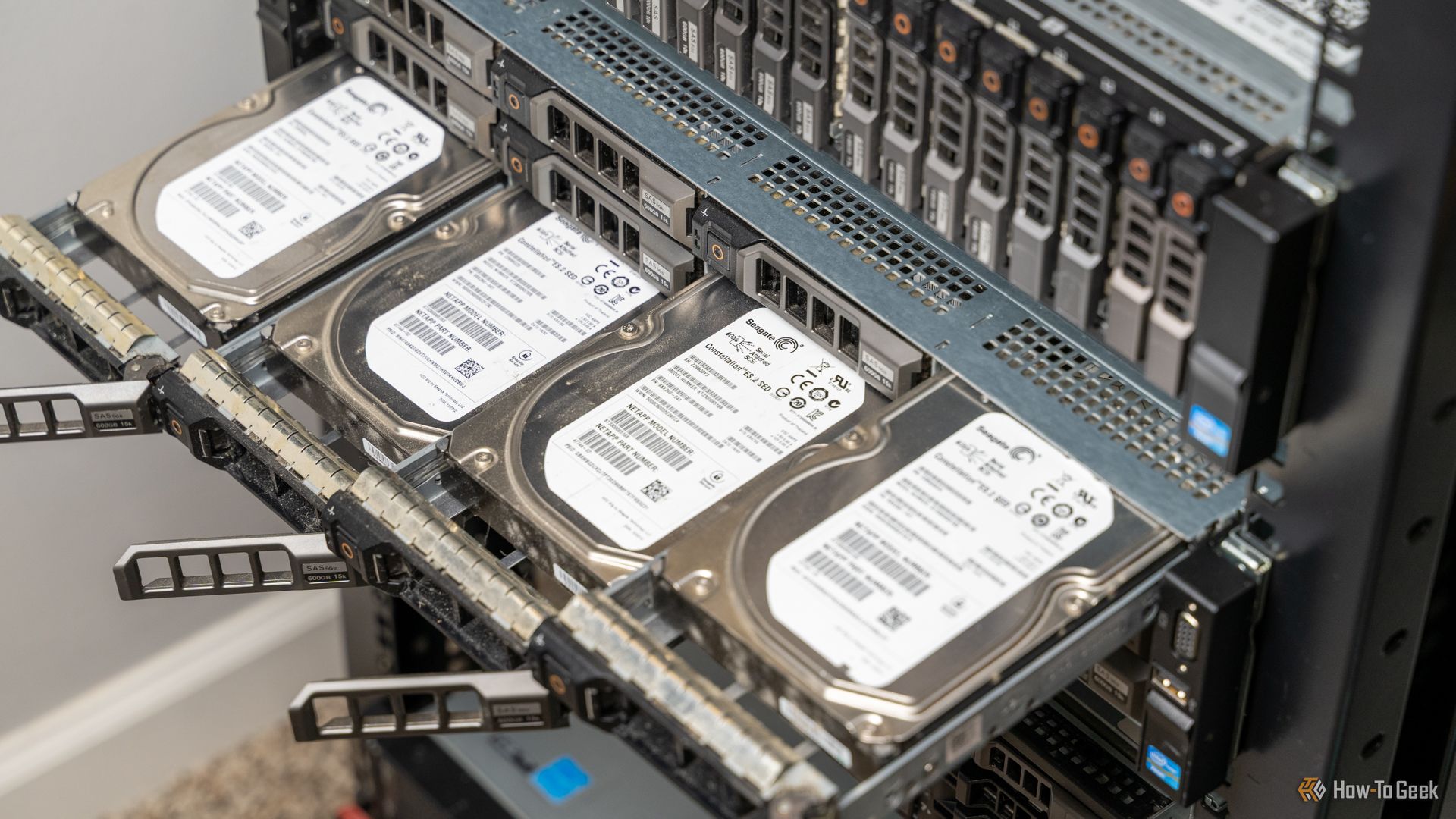Summary
- I love that self-hosting gives me control over my data and can save money in the long-run.
- However, certain services (like email) present numerous challenges that I’m simply not up for.
- These challenges, paired with reliability concerns, are paramount reasons why I’ll never self-host my own email server.
On your self-hosting journey, it’s likely you’ll try to self-host everything you can. I know that’s my goal—except for one thing: email. I refuse to self-host my own email, and here’s why I won’t ever do it.
The Appeal of Self-Hosting Everything
With so many data breaches, there’s definitely an appeal to just bring everything you can in-house. I know that I’ve gone down that road, and currently self-host several few services that I used to rely on other companies for.
I self-host things for a few reasons. The primary one is to save money, because it’s cheaper for me to pay for the power bill of a server at my house than to utilize dozens of paid services from a bunch of random online companies. But another byproduct of self-hosting is the enhanced privacy that’s achieved by keeping the data on my own hardware.

Related
Here’s Why I Built My Own NAS With Unraid and an eBay Server Instead of Buying a Synology
What homelab is complete without some retired enterprise gear?
This has led me to try self-hosting just about every service out there. From cloud storage to a media server, game servers, websites, smart home platforms, photo servers, and much more. In my self-hosting journey, however, I’ve come to realize that not everything is actually worth self-hosting. Some services just require too much upkeep and maintenance and aren’t worth the time investment to run locally.
So, I’ve decided those few things I’ll leave to the professionals—the professionals who have proper data centers (without any blocked ports), teams of people to monitor and fix if things go down, and plenty of servers to keep services up and going while doing maintenance on hardware or software.
Everything Includes Email…Right?
While I’ve looked into self-hosting email, this is one thing that I’ve never successfully done.
I currently pay for two emails with Google Workspace, which cost $8.40 and $16.80 respectively. Self-hosting my email (and cloud storage) would save me over $300 per year. This gives me a reason to try and self-host email for sure, but I just can’t bring myself to do it.

Related
How to Ensure the Privacy and Security of Your Cloud Uploads
Remember that “the cloud” really means “someone else’s computer”
One time, I tried deploying my own email server, but I just couldn’t get it working. Often, residential internet providers block email ports, which break things right out of the gate. However, my issues—and why I decided not to run my own email server—ran far deeper.
Email Is a Self-Hosted Beast I Don’t Want to Tame
As I said, I’ve looked into hosting my own email server—but there are a myriad of reasons that I don’t. And I’m not alone in this.
A quick browse of the r/selfhosted subreddit will show many other system administrators that highly advise against self-hosting email. The reasons vary greatly, but they all center around one thing: it’s just not worth the effort or hassle.
Some of these people on the r/selfhosted subreddit are even systems administrators that host and maintain email on-premises (self-hosting for a business) at their work, and they still don’t self-host their own email at home.
A few reasons for this come from the port issue that I already mentioned, as well as several others. Incoming email is relatively easy to set up, so long as your ISP allows that port. However, outgoing email is pretty difficult.

Related
How Does Email Work?
You send and receive it everyday, it’s instantaneous, and it doesn’t cost a thing.
SMTP is the industry standard when it comes to sending email, but the problem is that it can be difficult to set up and get fully working. One of the biggest issues is simply getting your emails delivered.
Even if you’re able to get the SMTP server properly sending email out, and you’re able to get the port forwarding to work, often times “non-authoritative” SMTP servers will be flagged as spam. This is because most large email companies use spam filtering to send any email that isn’t from a known and documented sending server straight to spam. Getting your email to not go to spam can be a pretty big challenge. Another issue related issue is filtering out spam on the incoming side of things.
All of this adds up to make email a beast that I don’t even want to get near. It’s already difficult for me to just get email working in self-hosted apps that need to use port 465 for SSL/TLS on sending mail, so I can’t imagine how hard it would be for me to get a full email server up and going.
Another issue would be reliability. Internet outage? No email. Power outage? Similarly, no email. If my server was down for any reason, my email would simply stop working. I rely on my email for business messaging quite often, so reliability is paramount for me.
I just don’t trust my email to be completely reliable if self-hosted. I truly can’t imagine what would happen if my email was down while I updated my server, or when my network went down, or for any other reason. For those reasons, I never plan to self-host my own email server.
While I won’t be hosting my own email anytime soon, there are quite a few other services that I self-host at home. If you’re wondering what services I run at home, here are 10 Docker containers that I personally have deployed, and that I think every homelabber should use in their services stack.







Leave a Comment
Your email address will not be published. Required fields are marked *